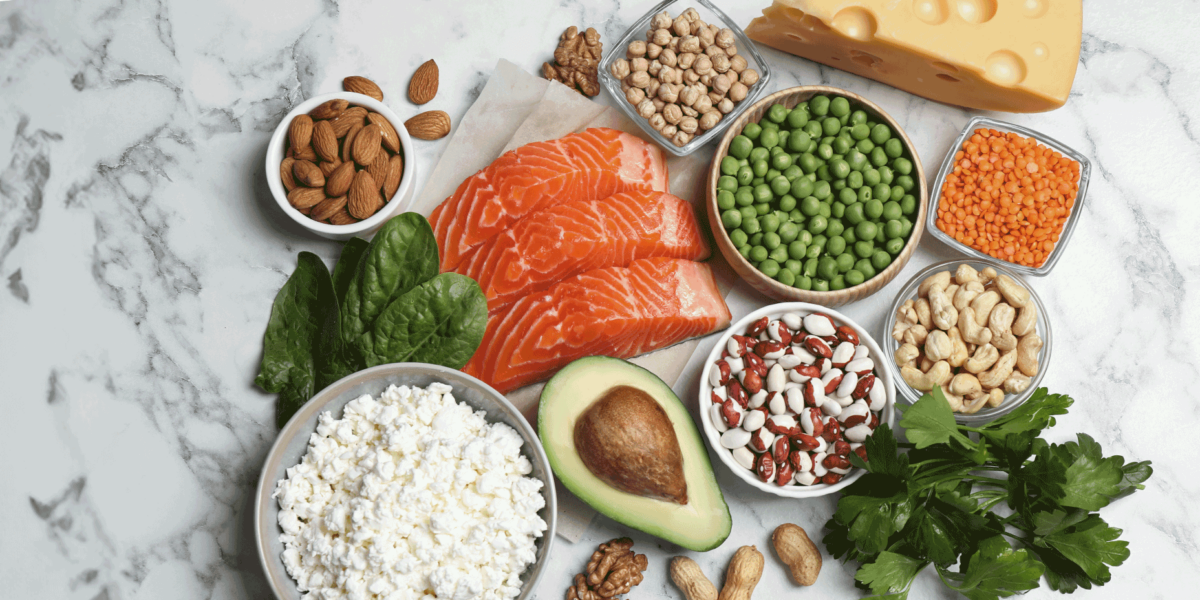Did you know that your body weight plays a direct role in your vitamin D status?
While several factors can contribute to how much vitamin D your body absorbs and produces (with the most well-known culprits being lack of sunlight and aging), body weight is right up there.
In this article, we’ll break down why overweight people require more vitamin D and the link between low vitamin D levels and excess weight.
Excess Body Fat: The Vitamin D Thief
So, how exactly does excess body fat impact your vitamin D levels?
As a fat-soluble nutrient, vitamin D has a natural affinity for your fat tissues. This means that once vitamin D gets into your bloodstream, your fat cells soak it up – interrupting its journey to your liver, where it’s metabolized into the circulating form of 25(OH)D.
Unfortunately, whether you take vitamin D as a supplement, get it from food, or produce it from sunlight, if it doesn’t make it to the liver for metabolism, it’s not doing you much good. See, after the liver converts vitamin D into 25(OH)D, it undergoes a second conversion in the kidneys to its active hormonal form, 1,25-D.
If your liver is unable to complete the first step, even the healthiest of kidneys can’t complete the second step. And, of course, the more fat tissue you have on your body, the greater your need for vitamin D[1].

How Much Vitamin D Do Overweight People Need?
Regardless of age, nationality, where you live, and genetics, studies show that if you hold excess body weight, you likely have upwards of 35% greater risk of vitamin D deficiency[2][3].
For this reason, The Endocrine Society suggests that vitamin D supplementation should be 1.5 to 3 times higher for someone with excess body weight, compared to someone with a healthy Body Mass Index (BMI)[4].
What exactly does this look like in terms of dosage?
The Endocrine Society recommends 1500 to 2000 IU for all adults with a healthy BMI.
This means that for individuals with excess body weight, that range would increase to 2250 up to 6000 IU, depending on your BMI.
If this sounds like a lot, keep in mind that vitamin D deficiency is already a significant issue among healthy individuals due to several factors, including time spent indoors and the natural aging process. Add to these the complications that come with excess body fat, and supplementing with vitamin D becomes a crucial addition to your healthcare routine.
Can Vitamin D Deficiency Cause Weight Gain?
Now, here’s where things get a bit more complicated. While being overweight can lead to low vitamin D levels (due to fat sequestering), it also appears that low vitamin D levels may drive weight gain.
Here’s the story:
Low levels of vitamin D trigger parathyroid hormone (PTH) levels to rise, which is the hormone responsible for balancing calcium levels. As PTH goes up, it causes the release of calcium from your bones and enhances uptake into your fat cells. Once in your fat cells, calcium triggers the production of more fat cells – i.e., weight gain[5].
Conversely, when vitamin D is in a healthy range, it prevents fat cell precursors from maturing into full-grown fat cells and assists in strengthening your bones and muscles – which in turn enhances your metabolic power[6][7].
Thus, low vitamin D leads to bone loss and weight gain, while a healthy level of vitamin D leads to enhanced strength, metabolism, and weight loss.
4 Tips To Support Optimal Health
While your body weight can be an important marker for overall health, the real goal is to enhance all of your body’s systems, and in doing so, weight often finds its natural balance. Understanding what your body needs at this time can take some trial and error, but some foundational steps can support almost anyone in their health journey.
Below are four tips to get you started in supporting weight loss and overall health.
#1 Ensure You’re Getting Enough Vitamin D
Vitamin D deficiency is widespread, and as you learned, it can be even more of an issue if you have extra weight on your body. To assist in weight loss, ensure that your vitamin D levels are adequate. If, after testing, you learn that your vitamin D levels are low, your next step is to figure out how much vitamin D you need to get your levels up to an optimal range. Keep in mind that although 30 ng/mL is considered adequate, at least 40 to 60 ng/mL is what many experts consider the minimal level for optimal health[8].

#2 Regular Physical Activity
Physical activity is one of the cornerstones of optimal health and is particularly beneficial if your goal is weight loss. Why? Because the more you move, the more calories you’ll burn.
But that’s not all.
Getting regular physical activity can produce a range of benefits outside of weight loss, including enhanced heart health, mental health, and bone health – to name a few[9][11]. All of these factors can, in turn, promote overall health and well-being and help you avoid complications of obesity, such as deteriorated bone health, joint pain, metabolic syndrome, and so on[12][13].
#3 Consume a Balanced Diet
In addition to exercise, a balanced diet is essential for attaining optimal weight and well-being.
The food you eat ultimately becomes the stuff that makes up your cells, tissues, and organs, so having a diet rich in nutrients can mean the difference between poor health and vitality.
Foods to focus on for weight loss include healthy fats like omega-3s from fish and fish oil, lean meats that are high in protein (or vegan sources of protein), and micronutrient-rich fruits and vegetables that can nourish your tissues and bones.
At the same time, you’ll want to avoid inflammatory and highly processed foods. These include refined grains, packaged foods, seed oils that are rich in omega-6 fats (often found in high quantities in processed foods), excess sugar, and of course, excess alcohol.
All of these foods will promote inflammation in your body which can further drive weight gain[14].
That said, it’s not about “all or nothing” thinking. Instead, focus on more high-quality whole-food items and try to reduce your intake of processed foods and alcohol as much as possible.

#4 Watch Out For Environmental Toxins
Another aspect of health to consider is the potential environmental toxins lurking in your home, office, personal care products, and cleaning supplies.
There are a litany of toxins legally allowed to be added to products that we inhale, consume, and put on our bodies. Many of these toxins, aptly named “obesogens,” have been shown to impact weight gain and inhibit weight loss directly.
While you may not be able to get rid of all of the toxins in your home, you can take steps to ensure that the obvious ones aren’t making their way into your body. Here are a few tips:
- Filter the water in your home
- Buy pesticide-free produce (organic) whenever possible
- Purchase household and personal care products that are free of toxins (The Environmental Working Group’s Skin Deep Guide is an excellent resource)
Takeaway
Excess weight and vitamin D have a bi-directional relationship, which means that if you want to tackle one of them, you need to tackle both. The best place to start is by getting your vitamin D levels checked and then starting on a supplement that will help you increase your vitamin D if you’re low.
The more fat you have in your body, the higher your vitamin D needs will be. And simultaneously, the lower your vitamin D, the more likely you’ll be to hold excess fat. Once you get your vitamin D levels straightened out, you’ll be in a much better position to start your weight loss journey. For more information and tips regarding all things bone health and longevity, sign up for the AlgaeCal Newsletter.
FAQs
#1. How much vitamin D should I take if I am overweight?
The amount of vitamin D you need depends on your current BMI. The Endocrine Society recommends 1500 to 2000 IU for all adults with a healthy BMI. For individuals with excess body weight, they suggest taking 1.5 to 3 times more vitamin D. This means the range would increase to 2250 up to 6000 IU, depending on your BMI.
#2. How are weight and vitamin D connected?
The more fat tissue you have, the more vitamin D you will require as fat tissue sequesters vitamin D and inhibits the conversion into its active form in your liver.
#3. Does vitamin D help with weight loss?
Vitamin D can help with weight loss by inhibiting premature fat cells from maturing into adipose cells (fat cells). Healthy levels of vitamin D also help to balance your parathyroid hormone, which may play a role in weight gain.
#4. Does vitamin D affect metabolism?
Vitamin D plays a role in energy metabolism and can impact adiposity (fat cell production). Furthermore, vitamin D may affect hormonal balance and impact metabolic pathways via hormonal dysregulation.
#5. Does being overweight contribute to low bone density?
Yes, having excess body fat can impact bone density via several mechanisms, including increased inflammation, hormonal dysregulation, and altered bone cell activity.





Rose Mary McIlvain
September 23, 2023 , 8:07 amDo you offer a vitamin D supplement?